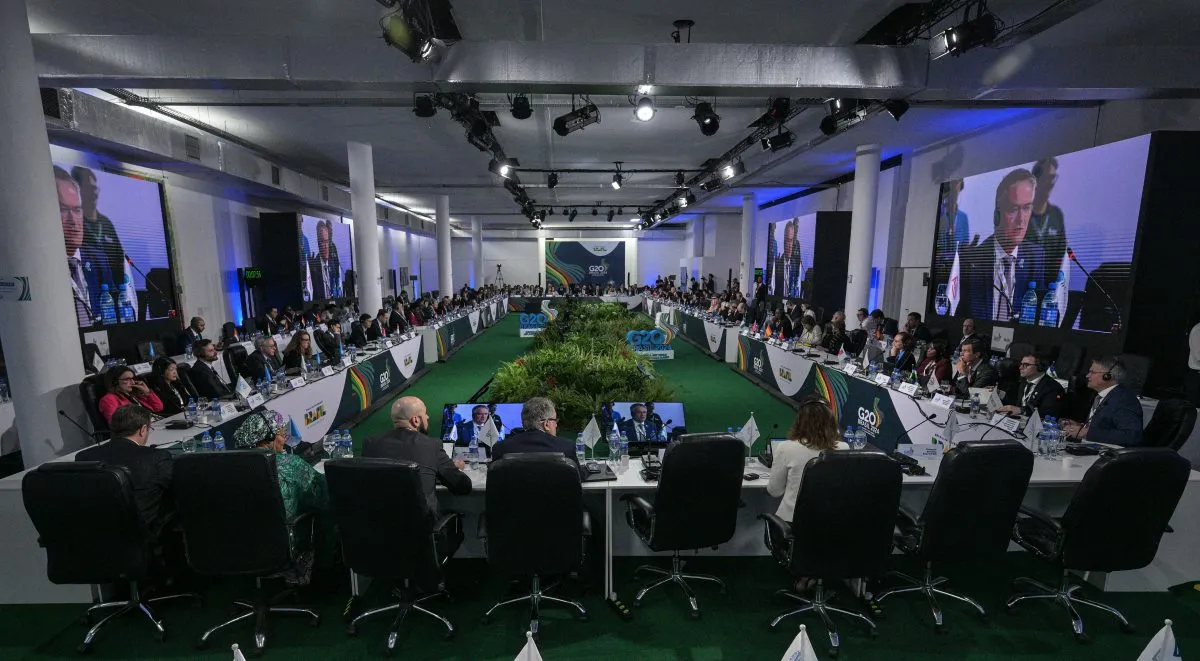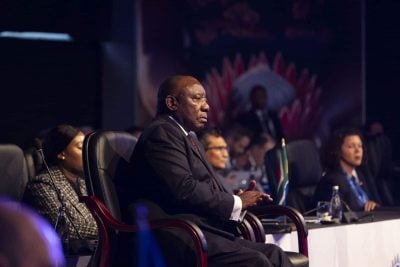Last week, the G20 finance ministers and central bank governors gathered in Sao Paulo, Brazil. On the agenda was a multitude of issues, including the reforms of the global financial architecture, the state of the global economy, food security, development and equity, trade and investment, climate change, energy transition, the digital economy, among many others. In the course of 2024, the Brazilian G20 Presidency has scheduled a total of 120 meetings before it hands over the Presidency to South Africa.
2024 is the first year that the African Union is participating as a permanent member. The just-concluded African Union Summit in Addis Ababa, Ethiopia provided key guidance on the process of setting up the support structure around the AU’s participation in the G20. This process will be subject to further discussions among African Union member states. But the G20 agenda is moving forward and seizing this opportunity to already put forward AU proposals is important.
So as a newcomer into the group, what are the key issues that the AU representatives can advocate for?
First, the AU can play an important role to advocate other G20 members to double efforts to address the challenge of debt distress in many low- and middle-income countries and address liquidity challenges head on. While in their meetings in India last year, the finance ministers recognised the need to “step up the implementation of the [G20 Common Framework for Debt Treatment beyond the DSSI] Common Framework in a predictable, timely, orderly and coordinated manner”, progress on this agenda could be ramped up. Not only is there a need to review the process to avoid a situation faced, for example by Zambia, which negotiating under the framework lasted three years before it secured a breakthrough, but there is also a need to strengthen the pre-emptive action capacity of the Common Framework in situations of illiquidity.
Therefore, the AU, could play a role in calling for a time-bound review on the Common Framework. Such a review, led by a mix of experts and finance ministry officials from affected countries and other G20 representatives, would explore avenues to ensure that negotiations under the framework are conducted transparently and within reasonable timelines. The review could also explore avenues to leverage debt treatment under the G20+ to address the challenge posed by private creditors and define guidance or proposals on how to engage them as well as international finance institutions.
Second, the African Union Summit deliberations flagged several concerns by African countries regarding the reforms of the global financial architecture. In the immediate future, the AU can build on its work and mainstream it into the G20. A concrete action by the AU would be to secure the G20 backing and engagement in good faith to take forward the African Group-sponsored resolution on the “Promotion of inclusive and effective international tax cooperation at the United Nations” through the negotiations for a UN tax convention. At a time when tax collection is emerging as a key route for financing the future, it is important that the governance of collected taxes is built to ensure that the taxes are beneficial rather than cumbersome for the average African.
Furthermore, at the AU Summit, leaders insisted on the need to channel a clear African position on the upcoming replenishment of IDA. An ambitious replenishment is critical, but it will admittedly face the reality of an increasing number of G20 members cutting down their development finance commitments as well as uncertainty over the position of the US Congress in a pre-electoral period with heightened tensions. A decline would be in line with the trend seen since its peak in 2012. Nonetheless, the AU can make the case, based on the experience of its member states and the need for concessional funding as provided by IDA that an ambitious replenishment is important.
Third, Africa’s fiscal challenges will increasingly arise from trade shocks. Discussions on inequality and development can therefore not be detached from trade. The role of the AU, including through the critical role of the Sherpa in driving this message home culminating in clear language at the end of the year is critical. Different climate-labelled trade measures are increasingly being introduced by G20 members with forecasted negative impacts on African countries. The European Carbon Border Adjustment Mechanism is for example expected to result in a $25bn/year loss for the continent. Last year, the G20 leaders already noted that, “green economy policies, including unilateral ones, should not constitute a means of arbitrary or unjustifiable discrimination or a disguised restriction on international trade”. The COP28 conclusions, largely thanks to a push by countries like Brazil with the support of African countries and others, have reiterated this message. The AU should argue, at the level of the G20, for the task force on trade to also provide specific recommendations on this issue to ensure that not only the principle of equity is respected but that the G20 truly plays the role of a platform where the economic wellbeing of its members is secured.
The Brazilian Presidency of the G20, followed by the first G20 meetings on African soil, in South Africa in 2025, present the AU with an opportunity to seed ideas on its ambition at the G20. After the focussed and successful campaign to secure a seat on the table, it is time for the continent to contribute to the menu.
Want to continue reading? Subscribe today.
You've read all your free articles for this month! Subscribe now to enjoy full access to our content.
Digital Monthly
£8.00 / month
Receive full unlimited access to our articles, opinions, podcasts and more.
Digital Yearly
£70.00 / year
Our best value offer - save £26 and gain access to all of our digital content for an entire year!

 Sign in with Google
Sign in with Google 



